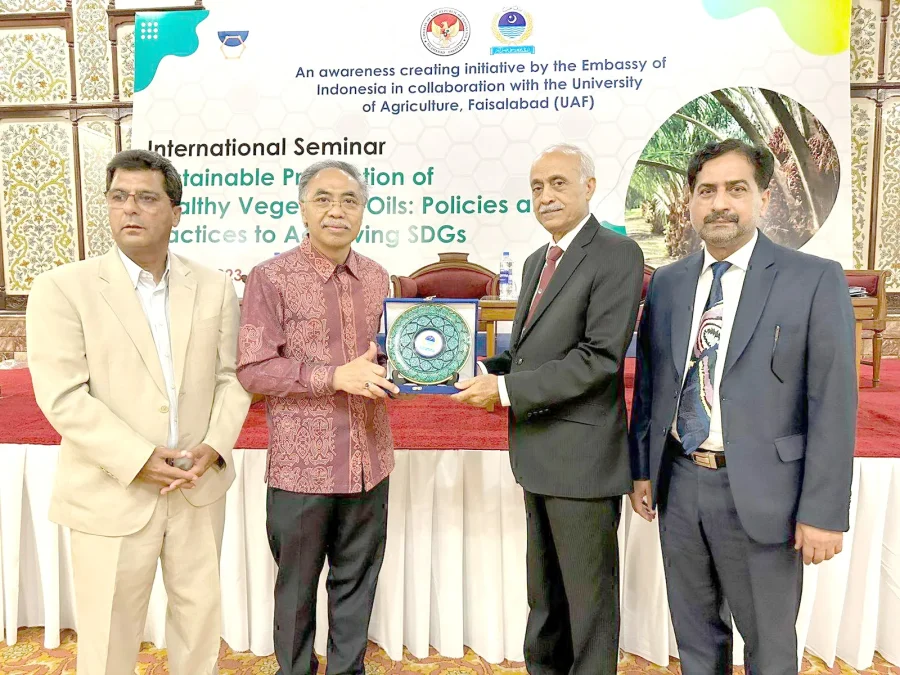The International seminar focused on ‘Sustainable Production of Healthy Vegetable Oils: Policies & Practices to Achieving SDGs’ was inaugurated in Faisalabad by Ambassador of the Republic of Indonesia Adam M. Tugio along with Vice Chancellor of the University of Agriculture, Faisalabad (UAF) Prof Dr Iqrar Ahmad Khan. The international seminar was organized by the Embassy of the Republic of Indonesia in collaboration with the Faculty of Food, Nutrition & Home Sciences UAF.
During the inaugural address, the Indonesian ambassador shared his views that the global population is growing at an unprecedented rate and estimates predict that we will need to produce 70pc more food by 2050 to feed the growing population.
“We need the brightest minds and ideas to find creative solutions for addressing the growing challenge of food security and malnutrition in developing countries”, said the envoy.
He further added that vegetable oils were an essential component of the global food supply chain and it is necessary to ensure that their production is sustainable to meet the rising demand. Ambassador Tugio also said that palm oil production is a crucial element in the global food value chain as it is a vital source of calories for millions of people and its production is very efficient which requires less land and water, resulting in minimal environmental issues.










